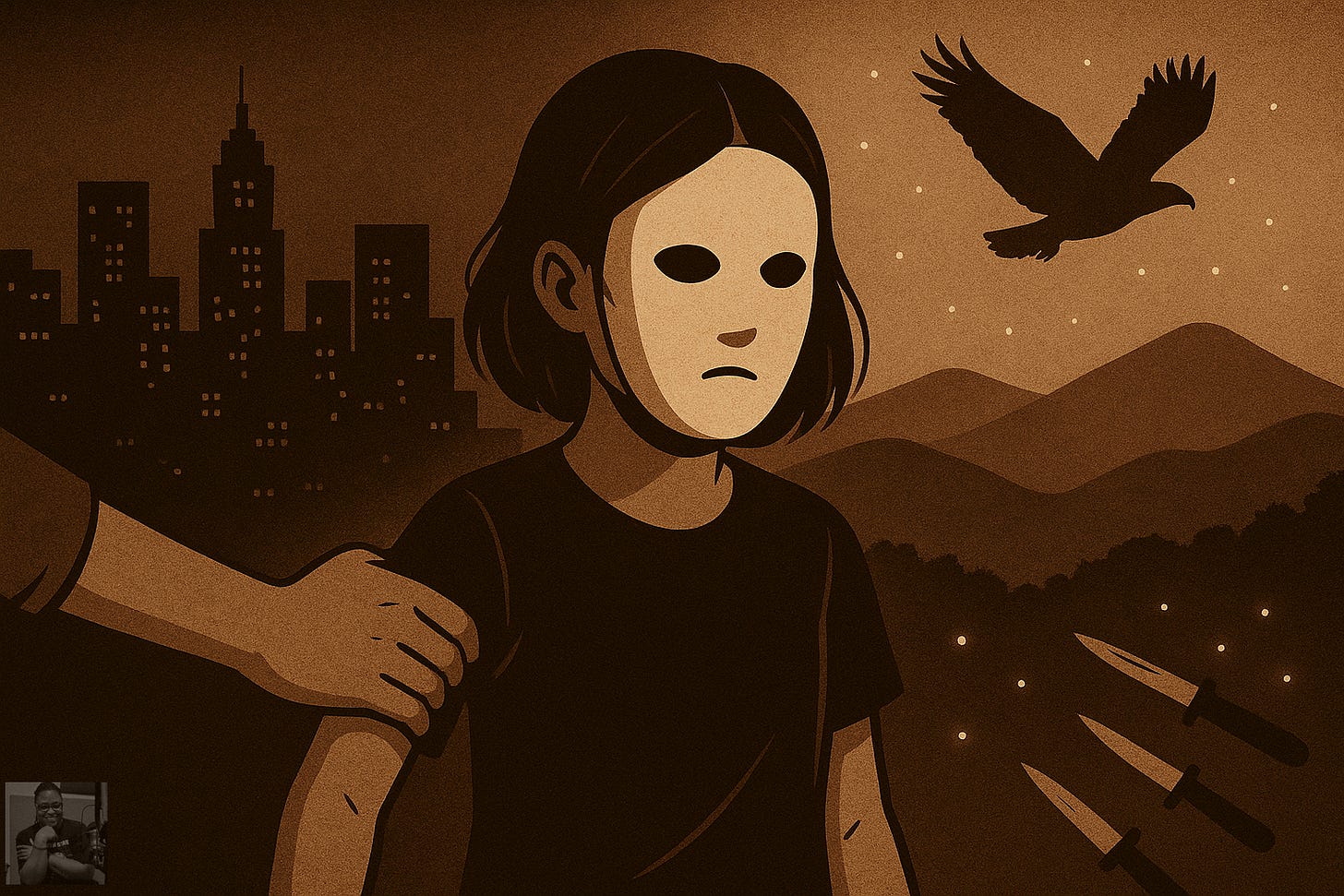Thinking Thursday #5
One Mask: What Metallica’s “One” Meant to a Sixteen-Year-Old Black Girl in the Blue Ridge Mountains
I was driving home yesterday when Metallica’s “One” came on the radio, and without thinking, I turned it up and started rocking out—hard. Head nodding, mouth moving, muscle memory pulling me back through time. I knew every word. But more than that, I felt every word. Because that song? It raised me.
Keep reading with a 7-day free trial
Subscribe to Say it With Your Chest to keep reading this post and get 7 days of free access to the full post archives.



